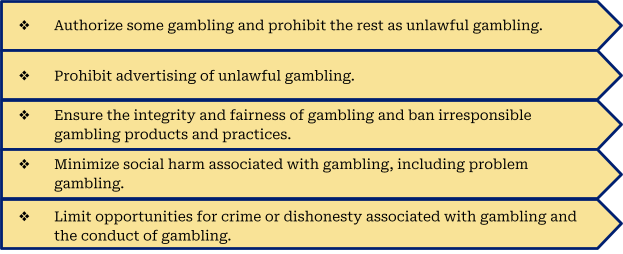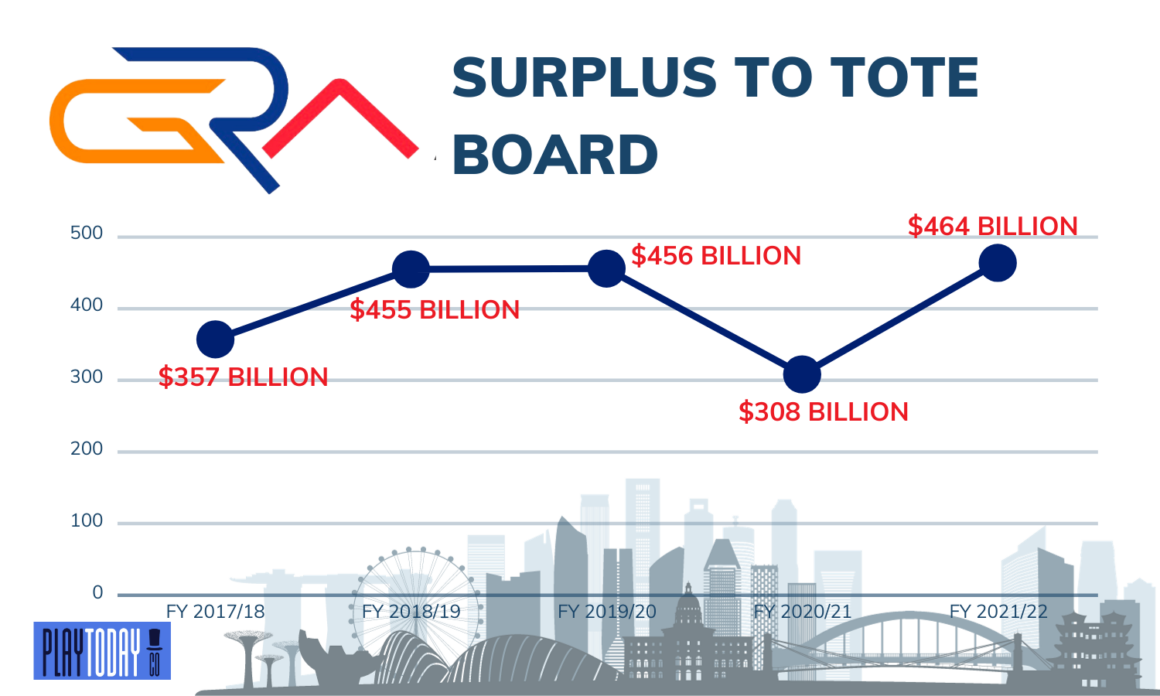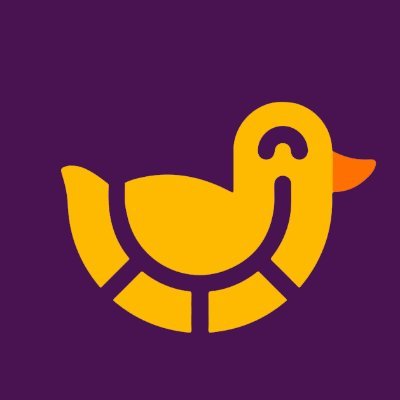Gambling Laws in Singapore Explained in 2024
Legal Disclaimer
This article is for informational purposes only and not to offer legal advice. Contact your attorney to secure advice on any issue or problem.Using this article or any links doesn’t create an attorney-client relationship. The writer’s views do not reflect the opinions of the firm or any individual attorney.
Singapore is known for its strict laws, which include its Gambling Industry. The country heavily regulates its betting citizens, with reports revealing that 9,000 Singaporeans would like to quit gambling.
In the latest financial report, the country made S$1.28 billion in land-based casinos in Q2 2023, while the Singapore Pools generated $9.2 billion worth of bets in lotteries and sports.
This article explains Singapore’s gambling laws in 2023 by detailing the country’s laws and authoritative figures, the industry, and available betting forms.
Highlights of the Article
- Singapore enacted the Gambling Control and Gambling Regulatory Act in March 2022.
- The Casino Regulatory Authority was reconstituted to the Gambling Regulatory Authority by the GRA Bill.
- The Ministry of Home Affairs announced its intent to strengthen gambling laws in April 2020
- The Gambling Control Act established three regimes: Licensing Regime, Class-Licensing Regime, and Social Gambling Exception.
- The Singapore government established the Singapore Pools on May 23, 1968, to combat illegal gambling.
- Singapore authorities allowed Marina Bay Sands and Resorts World Sentosa to continue its duopoly until 2030.
- Horse racing in Singapore will cease to operate and have its last race in October 2024.
- The age requirement in casinos in Singapore is 21 years old; Singapore Pools is 18 years old.
- Actor Terence Cao is under investigation for appearing in three videos endorsing an illegal gambling website.
Exploring The Legality of Gambling in Singapore in 2023
Gambling in Singapore is prohibited unless licensed, whether online or land-based. The Singaporean government discourages betting but allows it in certain forms and a controlled and safe environment.
Singapore clearly defines “gambling activities” to guide bettors and lawmakers. The country describes betting as “The elicitation or accepting of a bet on the outcome of a race, competition, sporting event, etc.”
The Lion City is home to two casinos, Marina Bay Sands and Resorts World Sentosa, combining for 4% of the Asia-Pacific’s casino industry, equivalent to 1.5% of the global casino market.
In the 1960s, Singapore enacted its first gambling laws, criminalizing illegal betting activities. Since then, SG has continuously developed regulations to address gambling-related issues.
Be informed about Singapore gambling laws and discover relevant information that guides bettors planning to hit the jackpot in the Lion City in the following sections.
Gambling Regulatory Authority: Singapore’s Vise Grip on Betting
The Gambling Regulatory Authority is among the ten agencies that keep the country safe and secure under the Ministry of Home Affairs.
The Singaporean government established the GRA in August 2022 following the enactment of the Gambling Regulatory Authority of Singapore Bill (GRA Bill) and Gambling Control Bill (GC Bill).
The GRA is responsible for regulating Singapore’s betting industry. Its mission is to protect Singaporeans from gambling harms and keep betting honest and free of criminal influence.
Statutes and Regulations of the GRA
The GRA derives its powers and control from the Gambling Regulatory Authority Act of 2022, the Gambling Control Act 2022, and the Casino Control Act 2006. These laws stipulate the following:
- Establishment and provision of functions and powers of the Casino Regulatory Authority of Singapore.
- Reconstitution of the Casino Regulatory Authority of Singapore as the Gambling Regulatory Authority of Singapore.
- Modification of the Singapore Totalisator Board’s functions.
- Consolidation of previous gambling laws, repelling the Betting Act 1960, the Common Gaming Houses Act 1961, the Private Lotteries Act 2011, and the Remote Gambling Act 2014.
- Make related and consequential amendments to the Casino Control Act 2006 and certain other Acts.
Helpful Article
The following links will route you to Singapore Status Online. This government website contains the full text of the laws mentioned.Gambling Regulatory Authority Act 2022Gambling Control Act 2022Casino Control Act 2006
Ministry of Home Affairs (MHA): Singapore’s Guardians
Singapore’s Ministry of Home Affairs comprises ten agencies. Known as the Home Team, the agencies have individual roles with a common goal of keeping Singapore safe and secure.
The GRA is among the three Statutory Boards of the Home Team. While the GRA regulates the gambling industry, the other two Statutory Boards below manage other civil functions:
- Home Team Science and Technology (HTX) integrates scientific and engineering capabilities to innovate and deliver transformative, operationally-ready solutions.
- Yellow Ribbon Singapore (YRSG) oversees ex-offenders’ reintegration into the national workforce.
Did You Know?
Singapore’s government is distinct for having eighty-three statutory boards.
In law, statutory boards are autonomous government agencies established by an Act of Parliament that specifies the body’s purpose, rights, and powers.
Transition from Casino Regulatory Authority to Gambling Regulatory Authority
Before GRA commenced in August 2022, CRA served as the regulator of casinos in Singapore. The CRA has an inherent limitation: its powers function only towards regulating casinos.
With the enactment of the GRA Act 2022, the Casino Regulatory Authority’s mandates expanded to cover SG’s entire betting scene, leading to the agency’s renaming to the Gambling Regulatory Authority.
By establishing a centralized agency regulating the gambling scene, the Singaporean government aims to:
- Effectively handle emerging gambling products and address current trends.
- Ensure consistency in policy-making pertinent to gambling-associated products and activities.
- Scale up social safeguards.
The Passing of the Gambling Control Act 2022
With emerging trends in the gambling scene and the introduction of new betting products and activities, Singaporeans view the legislation of GCA to be a timely development in the country.
The 2022 Act clearly defines gambling-related activities and products that must be regulated. Also, it broadens the government’s authority to protect the vulnerable sectors.
Here are some of the highlights of the Gambling Control Act 2022.
Critical Timelines Before the Enactment of Gambling Control Act.
In April 2020, the MHA announced it would establish the GRA and amend current gambling laws. The main goal was to address emerging gambling products and entities and streamline gambling regulation.
MHA conducted a public consultation on the proposed amendments in mid-2021. The proposals were to:
- Expand the gambling definition to be technology-neutral,
- Ease down on social gambling, and
- Enhance game regulations with gambling elements.
The Singaporean Parliament held two readings for the GRA Bill and the GC Bill, the first in February 2022 and the second in March 2022.
The Gambling Control Act 2022’s Purpose
The Singapore government enacted the GCA 2022 with the GRA Bill in March 2022. These legislations contend with the advancements and changes in the country’s betting industry.
As articulated in Part 1, Section 2 of the Gambling Control Act 2022, this law aims to:

The GCA and GRA introduced changes to the existing gambling laws, expanding on the definitions of ‘gambling’ and ‘betting,’ creating a unified framework to regulate gambling, and providing additional protection for at-risk groups.
Gambling Regulation under the Gambling Control Act 2022
The GCA’s adoption established three regimes, each serving a specific purpose with a common goal of controlling existing and incoming gambling activities and establishments.
| GCA Regime | Description | Coverage |
| Licensing Regime | ⚖️Replaces the past gambling permits and exemption regimes ⚖️Regulates licensing and screening of gambling establishments. | 💸Fruit machines in recreational clubs 💸Singapore Pools’ products 💸Gambling among members at private establishments such as recreational clubs and societies |
| Class-Licensing Regime | ⚖️Regulates assessed lower-risk gambling products | 💸Cause-related games of chance and lotteries 💸Survey-related games of chance and lotteries 💸Trade promotion games of chance and lotteries 💸Fundraiser lotteries 💸Remote games of chance 💸Incidental games of chance and lotteries 💸Mystery boxes |
| Social Gambling Exception | ⚖️Provides for the exception of social gambling, provided it meets specific criteria | 💸Social gambling activities among families and friends |
The three regimes establish the restrictions and requirements that individuals or establishments must abide by when applying for a license or engaging in any sanctioned gambling activity.
The Role of Singapore Pools

Gambling has always been part of Singapore culture. The government outlawing wagers forces Singapore bettors to engage in illegal activities that can lead to crime and violence.
To combat the risky betting scene during the 1960s-1970s, the Singaporean government established the Singapore Pools on May 23, 1968.
Singapore Pools focuses on providing citizens with a fair and safe betting experience and advocates for responsible gambling.
The Ministry of Home Affairs and Ministry of Social and Family Development regulates Singapore Pool’s betting products and services.
Safer Play Environment
Singapore Pools is highly committed to becoming a world-class, responsible gaming company as it builds and provides all its customers with a safe, fair, and trusted venue for betting.
The following are the rules that Singapore Pools established in all its retail outlets and Account Services:
- No betting by U-18 – Customers below 18 are strictly prohibited from placing bets nor claiming a winning ticket prize at any Singapore Pools outlet.
- No betting on credit – Singapore Pools’ account service only accepts cash, NETS, eNETS, or personal bank account debit.
- Provide a safe betting environment – Alcohol and smoking are prohibited.
- Safer Play reminders:
- “Play responsibly” message in bet slips and tickets,
- “Play responsibly” in all communication materials,
- Advisories from the National Council on Problem Gambling in our outlets.
Singapore Pools as a Not-For-Profit Organization
As a non-profit organization, Singapore Pools channels its surplus to the Tote Board to fund innovative projects for the benefit of all Singaporeans. These projects are under the following sectors:
- Social Service,
- Community Development,
- Sports,
- Arts,
- Education,
- Health Sectors.
Since 2010, Singapore Pools has contributed $2 million in duties and taxes to the Tote Board.
Each dollar bettors spend amounts to 22%, which goes to the Singapore government through taxes and duties. 5% goes to Tote Board funding, and 3% covers SG Pools’ operating expenses.
Around 70% of the funds go to the winning customers as prize money.
Singapore Pools Operations
The Gambling Regulatory Authority (GRA) granted a license to Singapore Pools on October 25, 2022. The license authorized Singapore Pools to conduct betting operations, gaming, and lottery.
Here is a breakdown of the approved Singapore Pools gambling venues, effective August 18, 2023:
| Type of Gambling Venue | No. of Venues |
| Racecourse | 1 |
| Livewires | 3 |
| Off-course betting centers | 8 |
| Outlets | 295 |
The Influence of Singapore’s Remote Gambling Act
The Singaporean Parliament passed the Remote Gambling Act on October 7, 2014, with the President approving it on November 18, 2014.
The Act provides the framework that oversees remote gambling activities and services in Singapore and functions under two primary purposes, which are as follows:
- Prevent remote gambling from being the main source, used to support, and associated with crime or disorder;
- Protect the young and vulnerable citizens from being exploited and harmed due to remote gambling.
Under the Remote Gambling Act, “Gambling” means betting, playing a “game of chance” for money’s worth, and participating in lotteries.
Learn more about the Act and the concerns it raised upon its enactment from the discussion below.
Specifications of the Remote Gambling Act
Singapore defines “remote gambling” as any type of betting wherein the person uses remote communication to participate, even if the main gambling act occurs by remote communication.
Remote communication means communication through:
- Telephone,
- Internet
- Television or radio
- Any kind of electronic medium or technology that facilitates communication.
Did You Know?
On September 29, 2016, the Ministry of Home Affairs approved the applications of Singapore Turf Club and Singapore Pools to be exempt operators under the Remote Gambling Act.
Further, providing remote gambling services within or outside Singapore is deemed unlawful under the Remote Gambling Act. Remote gambling services are in the form of:
- Distributing prizes offered in remote gambling;
- Organizing or managing remote gambling by others;
- Distributing money or money’s worth paid or staked by others;
- Providing facilities for remote gambling by others;
- Using any document, piece of equipment, or device to enable remote gambling by others.
Social Gaming under the Remote Gambling Act
The Remote Gambling Act’s issuance in Singapore raised concerns, especially regarding the standing of social gaming and the development of the gaming industry.
Concerned parties implied that the Act should prohibit publicizing the rankings of top players or tournaments organized by game developers where players receive real-world prizes.
To address the concerns, the Media Development Authority (MDA) issued a press release to clarify that the Act doesn’t intend to prohibit nor regulate most types of social games and only targets casino-style games.
The MDA reiterated that the Act doesn’t cover games that allow players to receive money or money’s worth and will not affect the gaming industry or social media gaming businesses.
Definition
The State of Singapore’s Gambling Industry
In 2022, Singapore’s land-based gaming revenue reached nearly $4 billion, a 76% increase from the previous year.
During the first quarter of 2023, Marina Bay Sands and Resorts World Sentosa generated a combined revenue of $1.13 billion, an 89% increase year-on-year.
The figures highlight how Singapore’s gambling industry shows no sign of decline post-pandemic, with analysts foreseeing the market growing at a CAGR of 3.33% from 2020-2026.
Some reasons contributing to the market’s growth are the increase in people’s surplus income, the number of tourists, and the availability of exciting offers from casinos and online gaming sites.
Singapore’s Casino Duopoly
In April 2019, the Singaporean government approved the expansion of the two integrated casino resorts: Marina Bay Sands and Resorts World Sentosa.
In return for the two casinos’ investment worth nearly $7 billion in non-gaming facilities and tourist attractions, Singapore authorized them to continue their duopoly until 2030.
“The integrated resorts’ investments will enhance the vibrancy and tourism appeal of their offerings to remain competitive with other destinations in the region, and bring in more than half a million additional visitors annually.”
The Ministry of Home Affairs, Ministry of Trade and Industry, Ministry of Social and Family Development, and Ministry of Finance stated in a joint statement.
The deal also authorized the two casinos to expand their areas. Marina Bay Sands, operated by Las Vegas Sands Corp, was allowed a 13.3% increase to a limit of 17,000 sqm. of its gaming area.
Resorts World Sentosa, owned by Genting Singapore Ltd, was granted a 3.3% increase to a maximum of 15 sqm of its gaming area.
Financial Highlights of Singapore’s Betting Industry (FY 2017-2018)
Singapore Pools’ revenue recorded its highest in FY 2021/22, reaching $10.1 billion, a 30% increase from the previous year.
The surplus to Tote Board also saw a rise of 34% due to the increased revenue and lower operating expenses.
Singapore Pools’ revenue across all products has increased since the pandemic.

Gambling Forms Available in Singapore
In Singapore, land-based gaming is permitted in two integrated casinos, Marina Bay Sands and Resorts World Sentosa, while online or remote casinos are prohibited.
On the other hand, the Singapore Pools is the only authorized operator for lottery and totalizer in-person and online sports betting.
In FY 2021-2022, punters placed around $9.2 billion on bets, lotteries, and sports. It was a 40% increase from the previous FY and recorded as the largest in the past decade.
Learn about the legal forms of gambling that Singaporeans can enjoy.
Singapore’s Land-Based Casino
In the first six months of 2023, Marina Bay Sands’ net revenue reached $1.77 billion, a 65% increase year-on-year. Its adjusted property EBITDA increased by 88% to almost $830 million year-on-year.
Resorts World Sentosa also experienced significant revenue growth in the same period, reaching $555 million, a 57% year-on-year increase.
Did You Know?
Resorts World Sentosa offers around 2,400 slots, 550 table games, and 15,000 square feet of electronic gaming machines.The casino has a floor area of around 300,000 square feet, almost half of Venetian Macau’s total area of 550,000 square feet, the biggest casino in Asia and worldwide.
4-Digit Game in Singapore Pools
Singapore Pools runs the 4-Digit Game in Singapore. It started selling 4D bets in May 1986 to the newly established computerized gaming.
A survey in 2020 revealed that 44% of the respondents participate in the 4D Lottery, making it the most played game.
To play 4-Digit, the player must purchase a 4-digit number from 0000 to 9999 for the Relevant Draw. After choosing the number, the player can decide whether to place a big or small bet.
| Prize | Number of 4-digit Prize Winning Numbers | Prize Amount (for every $1 stake) |
| 1st Prize | One number | $2,000 |
| 2nd Prize | One number | $1,000 |
| 3rd Prize | One number | $490 |
| Starter Prizes | Ten numbers | $250 |
| Consolation Prizes | Ten numbers | $60 |
| Prize | Number of 4-digit Winning Numbers | Prize Amount (for every $1 stake) |
| 1st Prize | One number | $3,000 |
| 2nd Prize | One number | $2,000 |
| 3rd Prize | One number | $800 |
Singapore’s Sports Betting Scene
The first live sports betting venue in Singapore commenced in 2007 at PoMo. In 2010, Singapore Pools launched Livewire sports betting in the country’s integrated casinos: Resorts World Sentosa and Marina Bay Sands.
Singapore’s rules on sports betting state that bettors can place their bets via:
- Outlet Betting
- Remote Betting
- Placing Bets via Telephone Call
- Betting on a Website Using the Account Betting System.
Singapore sports betting offers football and motor racing sports betting.
Horse Racing in Singapore
Singapore’s Horse Racing scene started on October 4, 1842, when a Scottish merchant, William Henry Macleod Read, introduced the sport in the country.
The total turnover of horse racing bets has reached $1.1 billion as of 2023, down from $1.8 billion in 2010.
However, the country will discontinue horse racing operations to use the land for public and private housing, with the final race scheduled in October 2024 during the 100th Grand Singapore Gold Cup.
Did You Know?
Horse Racing originated around 4500 BC in Central Asia, with the ancient population domesticating horses 6,000 years ago.
Singapore TOTO
In TOTO, bettors must buy a set of six numbers between 1 to 49. Correctly matching the numbers selected with any three or more of the winning numbers draw shall qualify the player for prizes.
TOTO launched in 1968, the first lottery game in Singapore Pools’ history. Its name originated from combining the words “Totalisator” and “Lotto.”
Since October 2014, six winning numbers and one additional number have been drawn from 49 numbers each Monday and Thursday. The chances of winning the TOTO jackpot is one in nearly 14 million.
| Prize Group | Number of Winning Numbers Matched | Prize Allocation | Odds of Winning |
| 1 (Jackpot Prize) | 6 | 38% of the Prize Pool | 1 in 13,983,816 |
| 2 | 5 + the additional number | 8% of the Prize Pool | 1 in 2,330,636 |
| 3 | 5 | 5.5% of the Prize Pool | 1 in 55,491 |
| 4 | 4 + the additional number | 3% of the Prize Pool | 1 in 22,197 |
| 5 | 4 | $50 per winning combination | 1 in 1,083 |
| 6 | 3 + the additional number | $25 per winning combination | 1 in 812 |
| 7 | 3 | $10 per winning combination | 1 in 61 |
Singapore Sweep Lottery
The Singapore Sweep Lottery was formerly known as Big Sweep. Singapore Pools held the first Sweep in 1969 to raise funds for the first National Stadium’s construction.
To play Singapore Sweep, the player must select a 7-digit number between 1,000,000 to 4,499,999. There are 3.5 million available numbers for sale for the Sweep.
The draw for the winning numbers is every first Wednesday of the month. 133 sets of winning seven-digit numbers and 9 sets of winning two-digit numbers are drawn in each draw.
| Prize | Number of Winning Number | Prize Amount |
| First Prize | One 7-Digit Number | $2,300,000 |
| Second Prize | One 7-Digit Number | $500,000 |
| Third Prize | One 7-Digit Number | $250,000 |
| Jackpot Prizes | Ten 7-Digit Numbers | $10,000 each |
| Lucky Prizes | Ten 7-Digit Numbers | $5,000 each |
| Gift Prizes | Thirty 7-Digit Numbers | $3,000 each |
| Consolation Prizes | Thirty 7-Digit Numbers | $2,000 each |
| Participation Prizes | Fifty 7-Digit Numbers | $1,000 each |
| Two-Digit Delight Prizes | Three Hundred And Fifteen Thousand 2-Digit Numbers | $6 each |
Singapore’s Lottery industry generated a lucrative $10.3 billion for the FY 2022, which ended in March 2023. The amount was 12% higher than the previous FY, which was around $9.2 billion.
Social Gambling in Singapore
On August 1, 2022, Singapore legalized Social Gambling, wherein family and friends can wager at home.
The Gambling Control Act sets the definition of social gambling. Gambling must occur in a person’s home and not in hotels, cafes, clubs, and community centers.
Social Gambling must also not be for the private benefit of anyone not participating in the betting activity.
“This allowance for social gambling in homes will not be extended to online platforms, given the practical difficulties in establishing the relationship of individuals in the online context, whether an online gambling activity is really social gambling among family and friends.”
Ministry of Home Affairs stated in a media press release.
Betting Age Restriction in Singapore
Singapore imposes a minimum age requirement of 21 years old and above to gamble in casinos legally. However, in Singapore Pools, the minimum age requirement is 18 years old.
The country strictly outlaws underage gambling. However, there are instances where everyone is allowed to bet, such as during social gambling, but only in someone’s home.
The GCA 2022 legalized social gambling. Although it was not initially illegal, the new Act sets parameters as to what is considered legal social gambling.
The law has functions to monitor gambling strictly, given how Social Gambling can occur through digital platforms.
Gambling Penalties in Singapore
Jail time and a substantial fine await anyone who engages in illegal gambling in Singapore. Depending on the weight of the violation, the gambling laws clarify what constitutes illegal gambling.
The table below shows the list of offenses and gambling penalties in Singapore:
| Offense | Penalty/Punishment |
| Underage gambling committed by the individual himself/herself, including entering gambling establishments and opening gambling accounts with Singapore Pools. | Upon apprehension, a maximum fine of $1,500 is charged against the offender. |
| Illegal gambling with an underage person (except physical gambling in private spaces), including forcing the minors to gamble and employing minors in casinos | A jail time of 6 years and a fine of $300,000 or both is charged against the offender. |
| A person has organized and financed an unlawful gambling establishment. | First Offense – 5 years imprisonment and a fine of $500,000 Second Offense – 7 years imprisonment and a fine of $700,000 |
| A person has been seen entering and leaving an unlawful gambling establishment | Six (6) months imprisonment or a fine of $10,000 or both |
The latest data shows that nearly 2,500 Singaporeans have been apprehended from 2019-2022 for illegal gambling.
Singaporean Actor Terence Cao’s Appearance in an Illegal Gambling Website
In 2023, infamous Singaporean actor Terence Cao made headlines when he got involved in an illegal gambling controversy.
The 55-year-old actor appeared in three video clips endorsing a gambling site. Investigations are ongoing, and if the actor is found guilty, he must pay the penalty amount of $20,000.
Last May 2021, Cao paid a fine of $3,500 along with 12 other guests for attending a fellow actor’s birthday party amid the pandemic.
The Wrap-Up
Explaining Singapore’s gambling laws in 2023 shows the country’s stance on betting. The Lion City realizes the harm of gambling yet finds ways to regulate it and capitalize on its profitability.
The GRA has yet to legalize cryptocurrency gambling, among the most popular casino trends. Only the Singapore government knows what actions it shall take in the next few years.
While other countries have seen a decline in CAGR for their gambling industry during the pandemic, Singapore continued to flourish, highlighting what fair and regulated gambling laws can do.
FAQs
What are the rules for casinos in Singapore?
To enter the casinos in Singapore, one must be 21 years old and above to play legally.
What is the penalty for online gambling in Singapore?
A person caught underage gambling must pay a fine of $1,500 and a fine of $300,000 and above for other grave violations.
Is crypto gambling illegal in Singapore?
Yes. Singapore has yet to make plans to legalize cryptocurrencies in land-based casinos.
Is BK8 legal in Singapore?
Yes. It’s also the only trusted online casino in Singapore.
List of sources
- Gaming Intelligence
- Straits Times
- Singapore Legal Advice
- Ministry of Home Affairs
- Gambling Regulatory Authority
- Ministry of Home Affairs
- iGB
- ReedSmith
- Morgan Lewis
- Singapore Pools
- Singapore Pools
- Singapore Pools
- Singapore Pools
- Singapore Pools
- Singapore Pools
- Singapore Pools
- Gambling Regulatory Authority
- Singapore Statutes Online
- Thomson Reuters
- Singapore Statues Online
- Thomson Reuters
- IMDA
- Thomson Reuters
- 6Wresearch
- Gaming Intelligence
- Gaming Intelligence
- GGRAsia
- Gambling Insider
- The Straits Times
- The Online Citizen
- Inside Asian Gaming
- Singapore Pools
- Singapore Pools
- Singapore Turf Club
- BBC
- Singapore Pools
- Singapore Pools
- Singapore Legal Advice
- Channel News Asia
- Singapore Legal Advice
- Straits Time
- Singapore Legal Advice
- Stomp (Straits Times)
 BC.Game
BC.Game  7Bit
7Bit  Ducky Luck
Ducky Luck  Red Dog
Red Dog